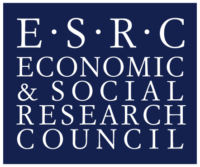The Political Party Database Project
Project Directors
Thomas Poguntke
Düsseldorf Party Research Institute (PRuF)
Heinrich-Heine-Universität
Düsseldorf, Germany
poguntke@hhu.de
Susan Scarrow
Department of Political Science
University of Houston
Houston, TX 77006-3011 USA
sscarrow@uh.edu
Emilie van Haute
Science Po ULB
Avenue Franklin Roosevelt 50 – CP 129/08
1050 Brussels
emilie.van.haute@ulb.be
Paul Webb
Department of Politics,
University of Sussex,
Falmer, Brighton BN1 9SN, UK
p.webb@sussex.ac.uk
Database Editor
Susan Scarrow
University of Houston
Advisory Board
Ingrid van Biezen Leiden University
Kenneth Janda Northwestern University
Richard Katz Johns Hopkins University
Miki Caul Kittilson Arizona State University
The Political Party Database Project is a multi-country collaborative effort to advance the study of party-based representative democracy. The first round of data, which encompasses 19 countries and 122 political parties, was released in January 2017. Round 1b, covering 6 additional countries and 24 more parties, was released in November 2018. Round 2 data, released in March 2022, covers 51 parliamentary and presidential democracies, and 288 parties.
Information on our Team Members is available on the country pages.
-
- An overview of Round 1 data and methodological background is available in: “Party Rules, Party Resources, and the Politics of Parliamentary Democracies: How Parties Organize in the 21st Century”, in Party Politics. Those using Round 1 data should cite this article.
- A broad range of analyses using PPDB data is presented in Organizing Representation: Political Parties, Participation and Power (editors Susan E. Scarrow, Paul D. Webb and Thomas Poguntke), Oxford University Press, 2017.
- Analyses using Round 2 data and a list of Round 2 contributors is presented in “Intra-party decision-making in contemporary Europe: improving representation or ruling with empty shells?” Irish Political Studies. Those using Round 2 data should cite this article.
This project has been supported by funding from the following institutions and associations. We are grateful for their support.
Deutsche Forschungsgemeinschaft (Germany)
Economic & Social Research Council (UK)
National Science Foundation (US)
Fritz-Thyssen-Foundation
European Consortium for Political Research – ECPR Research Sessions 2011
Israel Studies Collaborative (ISC) at the Schusterman Center for Jewish Studies, University of Texas at Austin
Levi Eshkol Institute for Social, Economic and Political Research
Heinrich Heine UniversityDüsseldorf –Party Research Institute (PRuF)
University of Houston – Small Grants Fund
University of Oslo – Småforsk (research fund)
University of Leiden
University of Limerick Faculty of Arts, Humanities and Social Sciences
University of Sydney – International Program Development Fund
Faculty of Management at University of Tampere – Finland
Japan Society for the Promotion of Science (JSPS) – KAKENHI Grant National Fund for Scientific Research (FNRS/FWO) – Excellence of Science Grant


